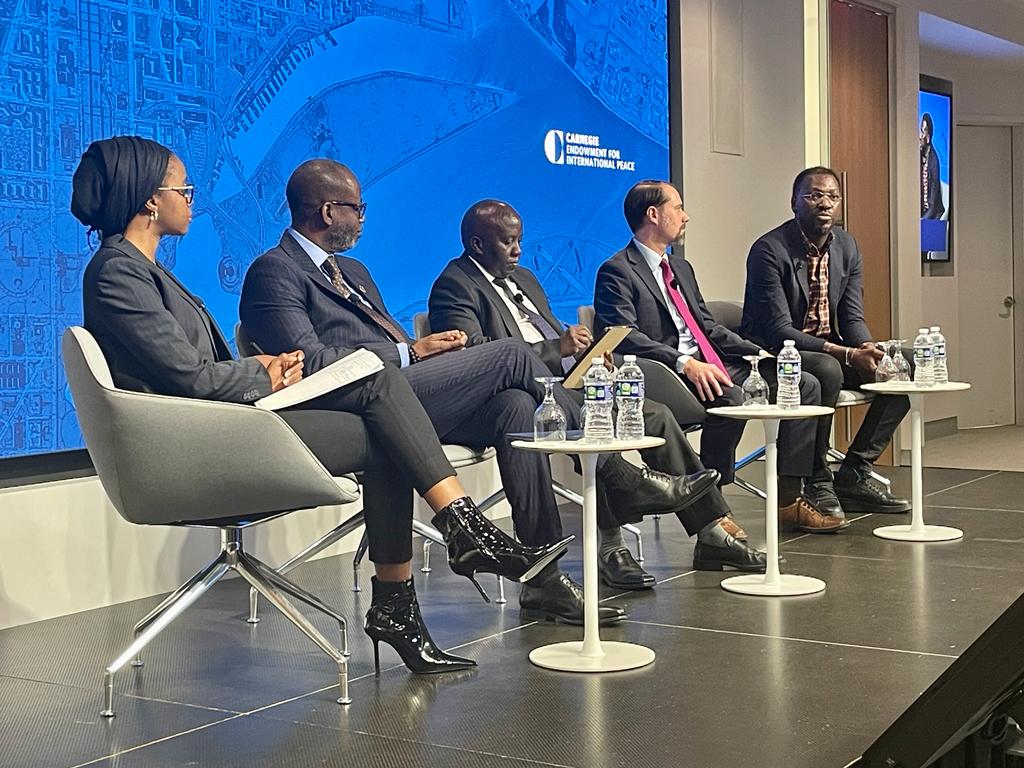We all have them. Those apps we open without thinking. Not because we need anything in particular, but because they feel… safe, in some…
‘Payments, commerce & logistics are key,’ says Flutterwave

“The three major pillars that can help Africans effectively leverage digital transformation for inclusive and sustainable development are payment, commerce and logistics,” said Flutterwave chief executive Olugbenga “GB” Agboola.
Speaking at the US-Africa Leaders’ Summit in Washington, D.C., Agboola argued that these pillars supported the cross-border movement of money, people, goods, and services without barriers.
At $3 billion, Flutterwave is currently the highest valued African start-up. Agboola, a Nigerian software engineer, has been involved in finance and technology for more than a decade. He contributed to the development of solutions at companies including PayPal.
Olugbenga was a panelist in discussion titled “How Can the U.S. Support an Inclusive Digital Transformation in Africa?” at the international summit hosted by the Carnegie Endowment for International Peace.
Agboola, while speaking, acknowledged challenges to the growth of digital transformation in Africa. He said, “For Flutterwave to build a payment infrastructure that connects more than 30 of 50+ African countries, we had to visit every country in the continent, get different licenses, build partnerships and connect with regulators. At the end, we have over 500 payment partner integrations at Flutterwave that must be maintained daily.”
Other panelists included Engr. John Tanui, principal secretary of the state department for ICT and digital economy in Kenya, as well as Lacina Kone, director-general and chief executive of Smart Africa, and Christopher Burns, chief digital development officer at the US Agency for International Development and director for technology in the innovation, technology, and research hub at USAID.
Burns spoke on the need for countries to embrace the responsible use of digital technologies. He added, “When you look at the investment that has been made across the continent over the past 20 years, they are deliberate investments that track everything from policy to infrastructure to services to capacity building”.
The reasons for this nascent investment strategy across Africa include, “a better understanding of digital transformation and its attendant risks, the effect of Covid-19 in speeding up digital transformation in the continent and the USAID Digital Strategy which has made the promotion of secure, open, and inclusive country-level digital ecosystems across the world a priority for the US.”
Dr Zainab Usman, senior fellow and director of the African programme at the Carnegie Endowment for International Peace highlighted the importance of uniform growth of Africa’s digital ecosystem.
The digital transformation in Africa comes with its risks, added Tanui. He commented on how the Kenyan government enables innovation. “The Kenya government, through many bills and initiatives like Kenya Information and Communication Act, ICT Universal Fund, Data Protection Act, Kenya National Innovation Agency, Digital Economy Bill, and the Startup Bill has been working hard to ensure a functioning legal and regulatory environment that does not stifle innovation.”
He also highlighted the efforts of the government to provide opportunities for innovators to pilot and commercialise their ideas within a reasonable time frame. “We established the National Council of Science, Technology, and Innovation, the Kenya National Innovation Agency with research funds to support innovative and promising ideas.”
Lacina highlighted that bold and innovative commitment from African heads of state and government, like the SMART Africa alliance, which consists of 36 African countries, will accelerate sustainable socio-economic development.
He said, “What we at SMART Africa and other stakeholders should do is policy harmonization of the continent for investors to see Africa as a 1.3 billion market. We can become a startup continent, have more than seven unicorns like Gbenga’s Flutterwave and improve intra-Africa trade when we leverage on our youthful population and harmonize our regulations.”
The panelists agreed that investments aimed at achieving an inclusive digital transformation of Africa must be deliberate, holistic, and collaborative to include national government, private sectors, global players like the US, and civil societies.
ALSO READ: Ashanti prince to open P3-USAS in Washington D.C.

